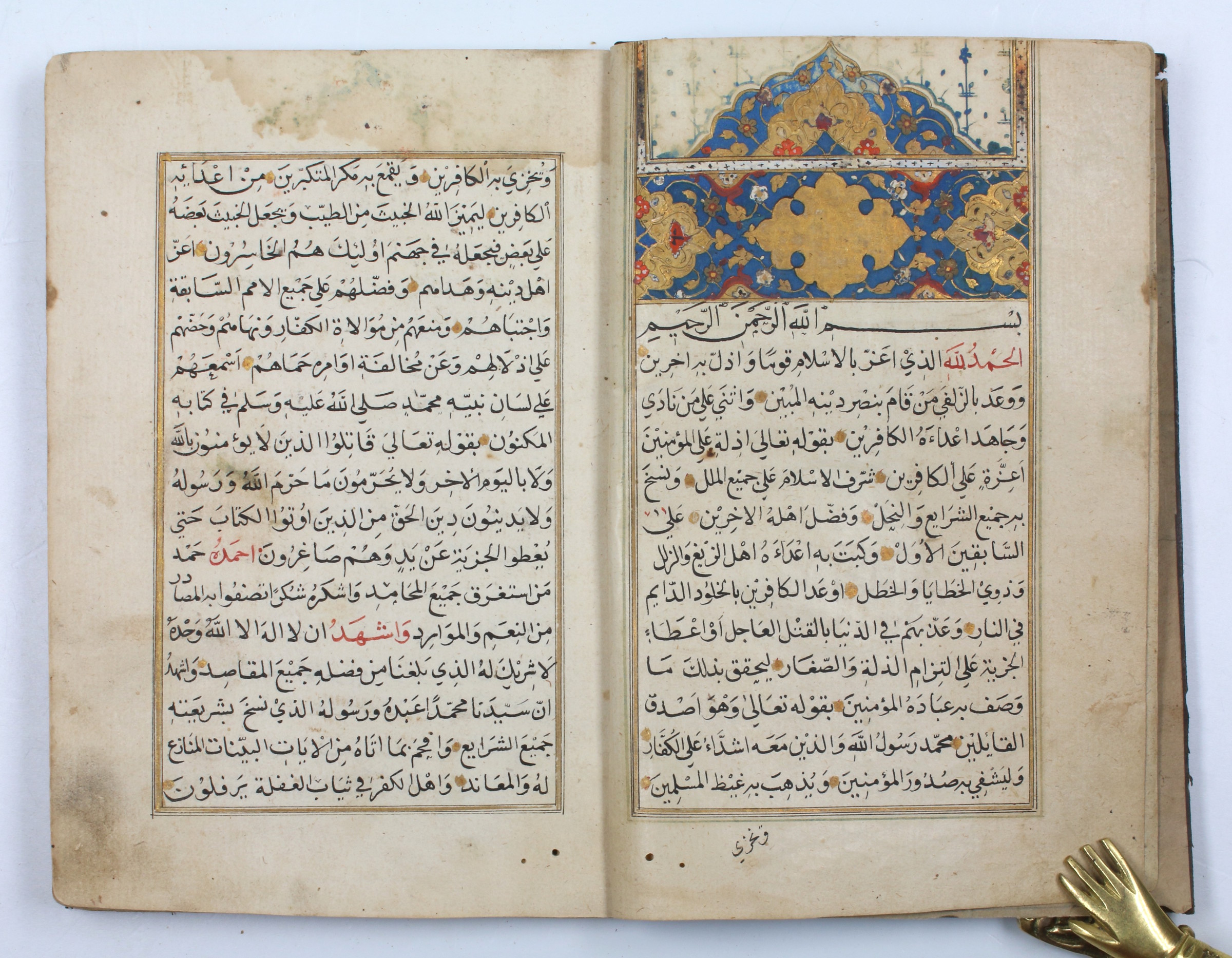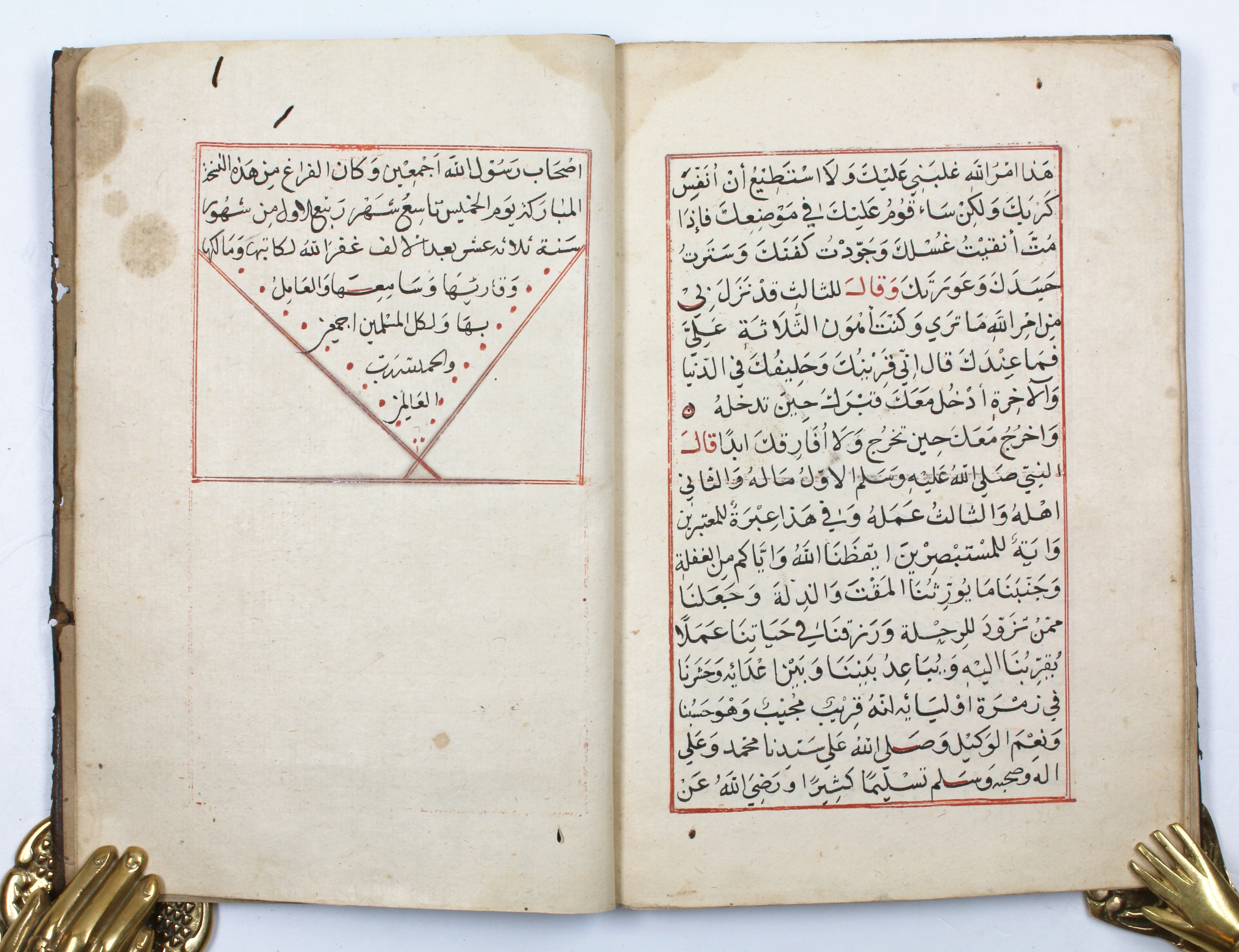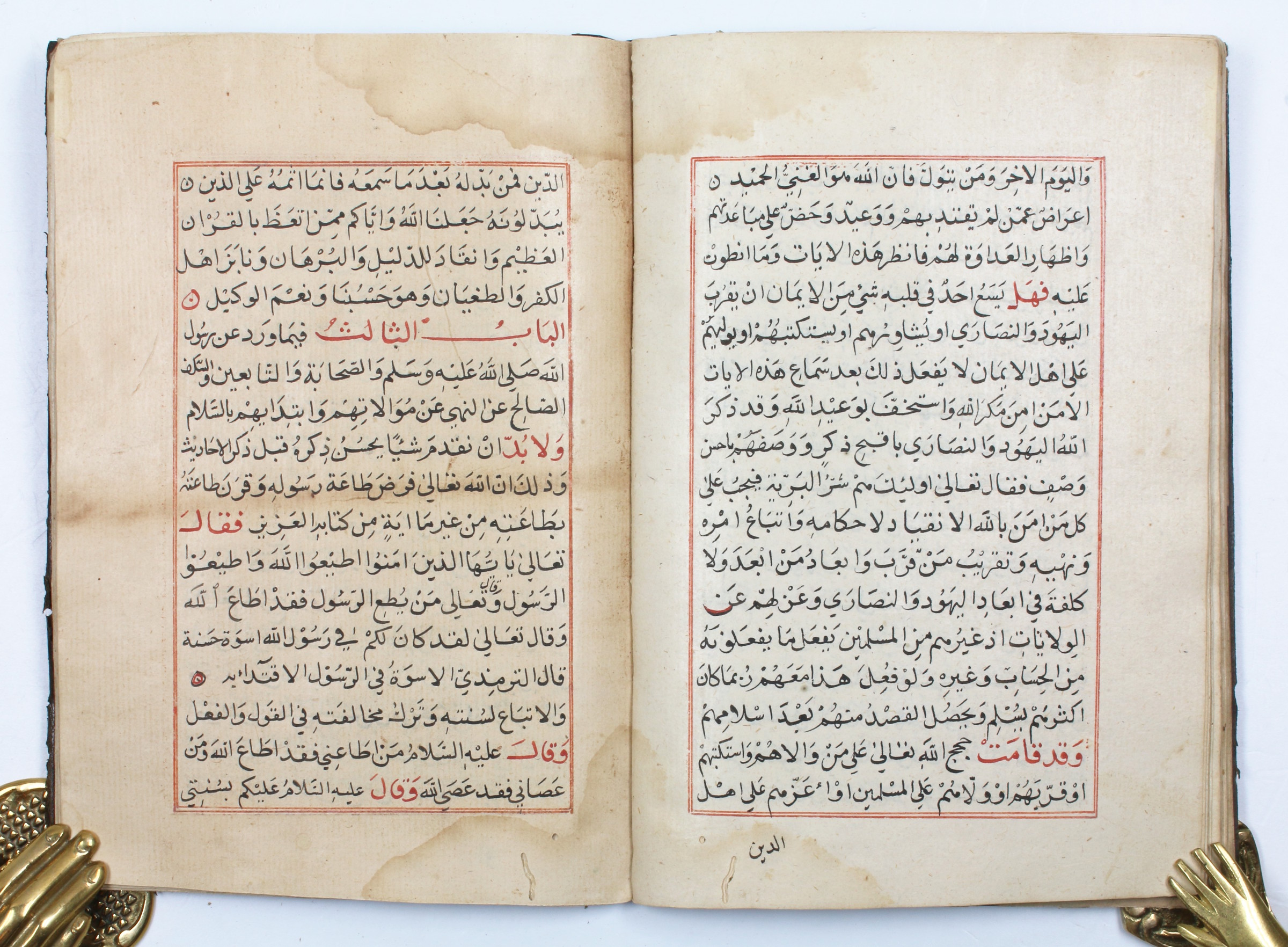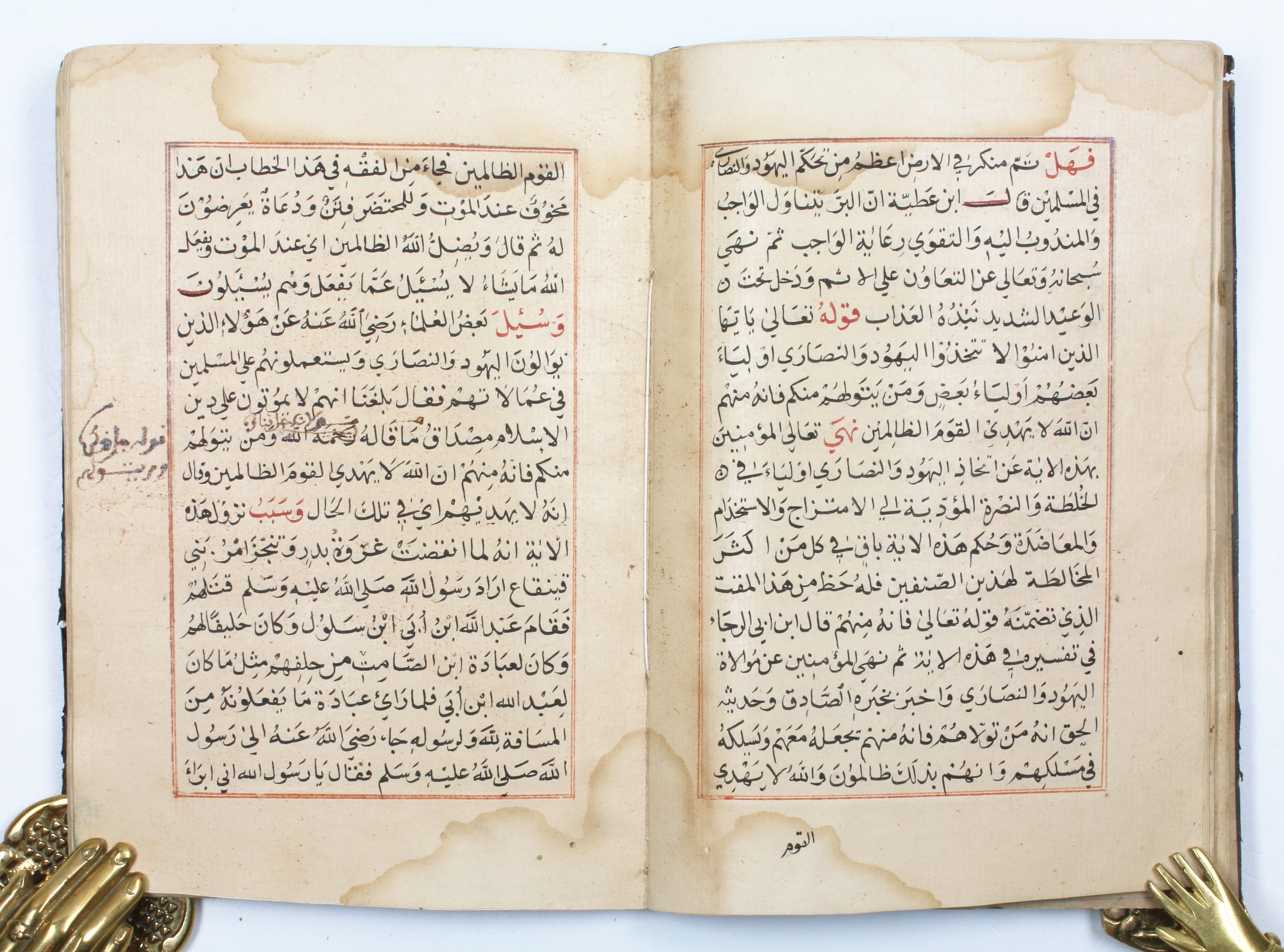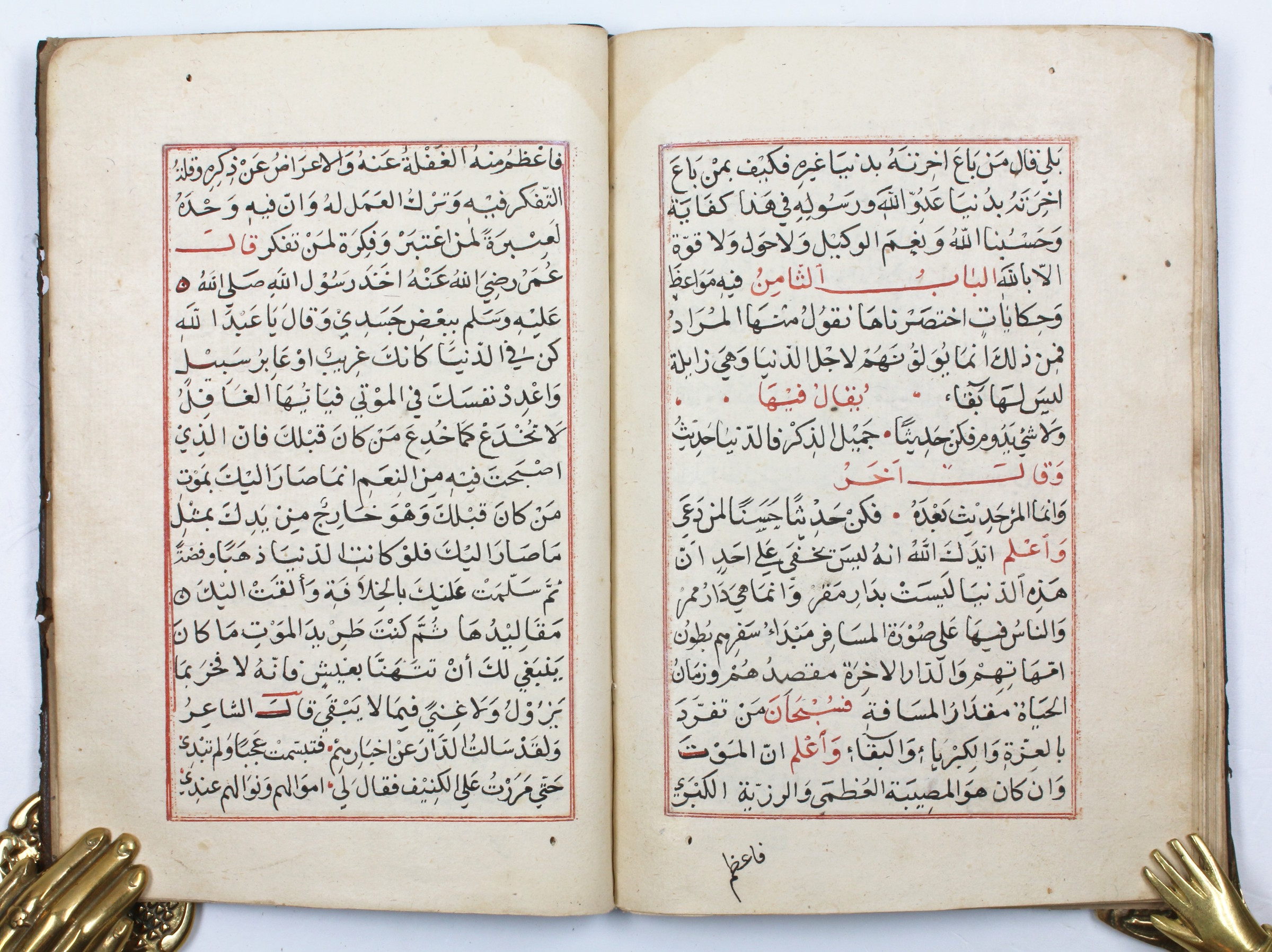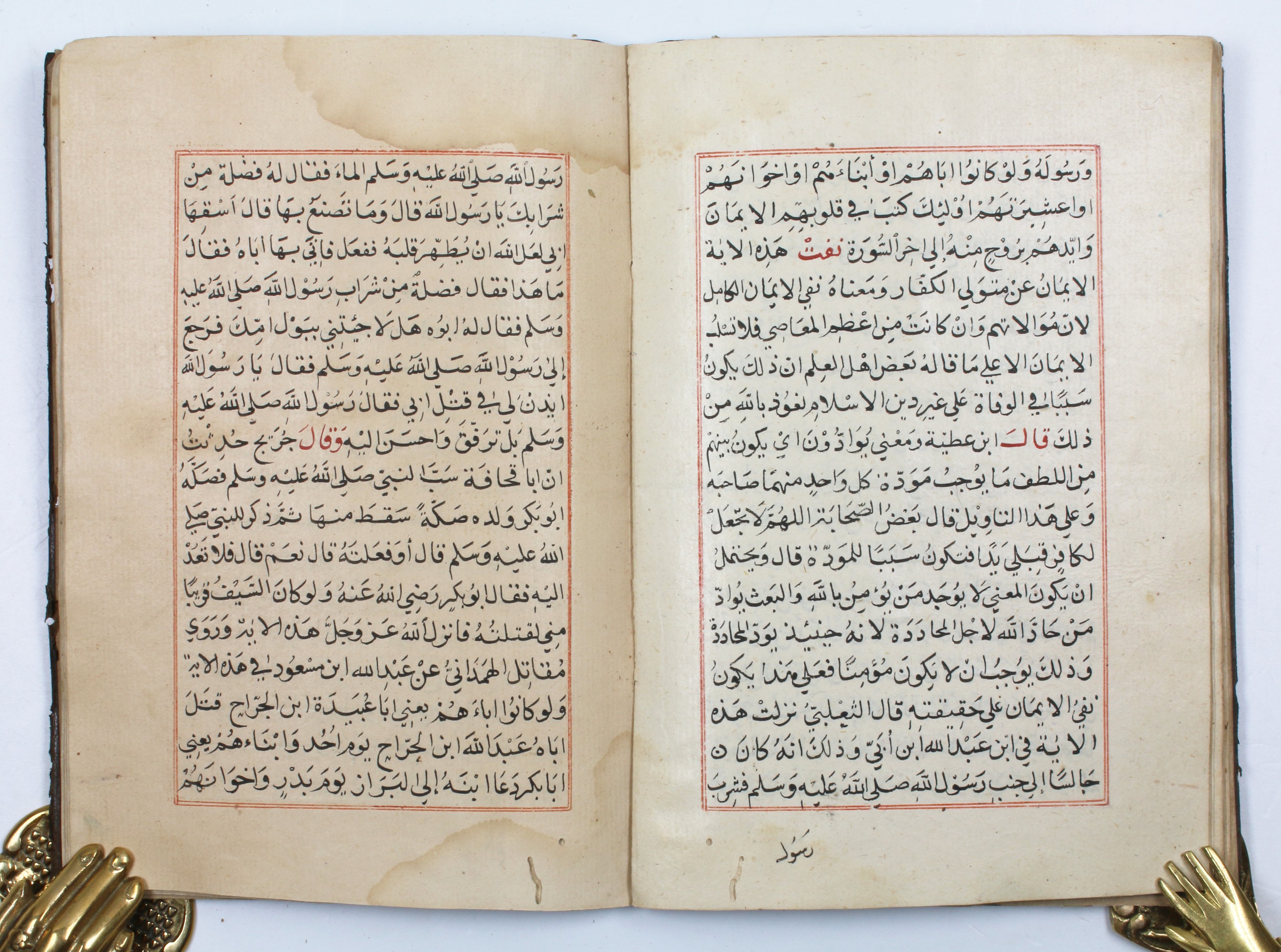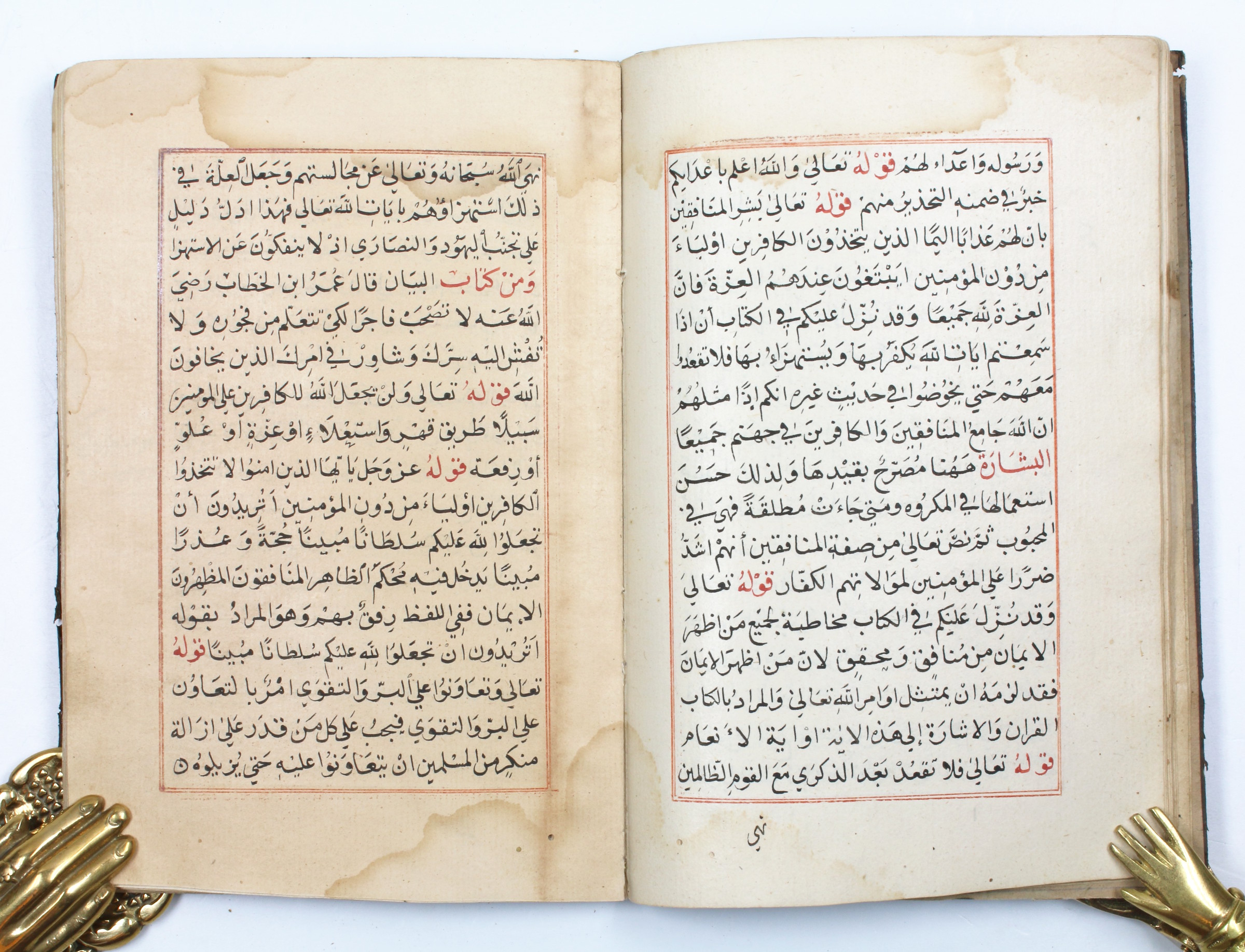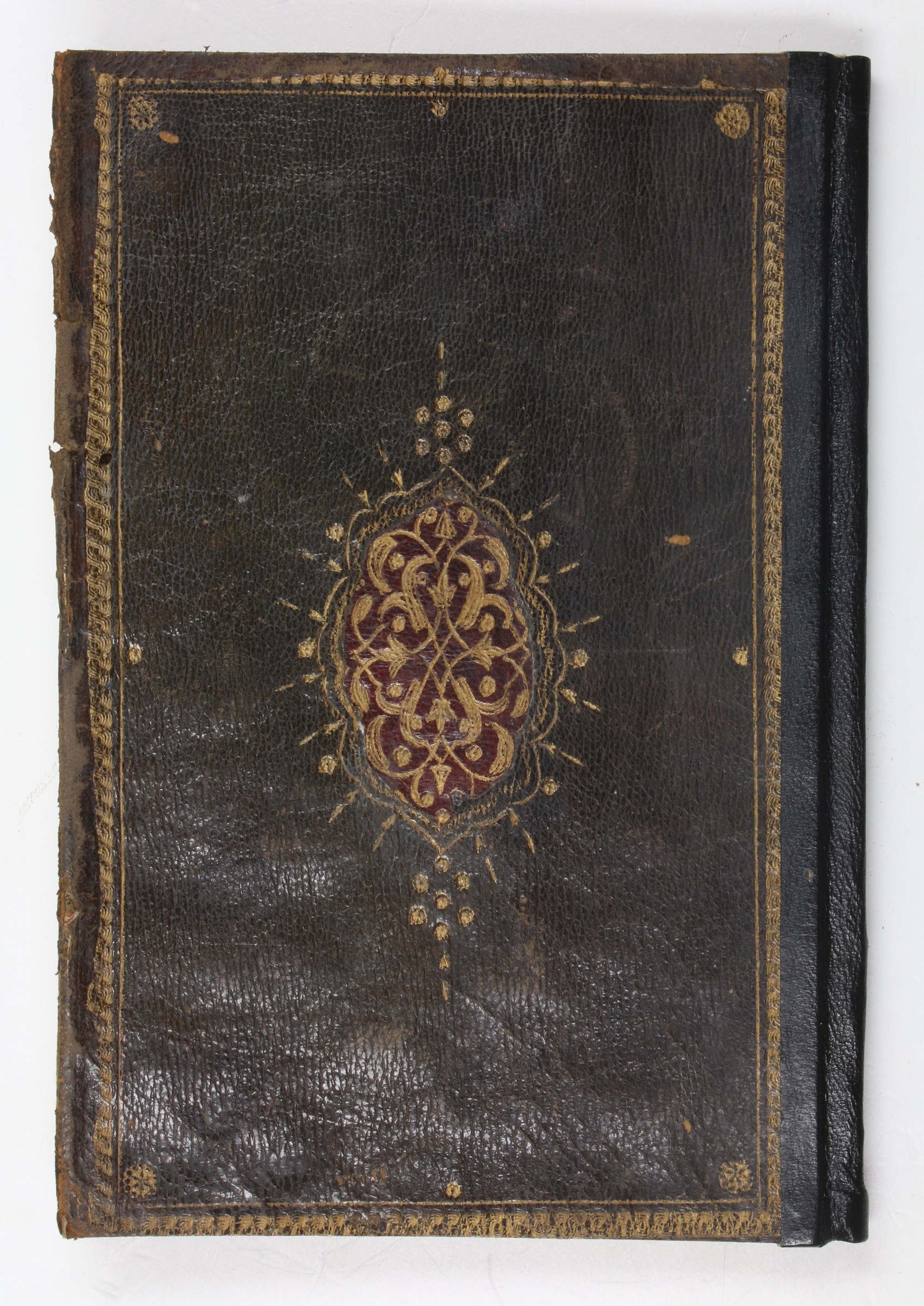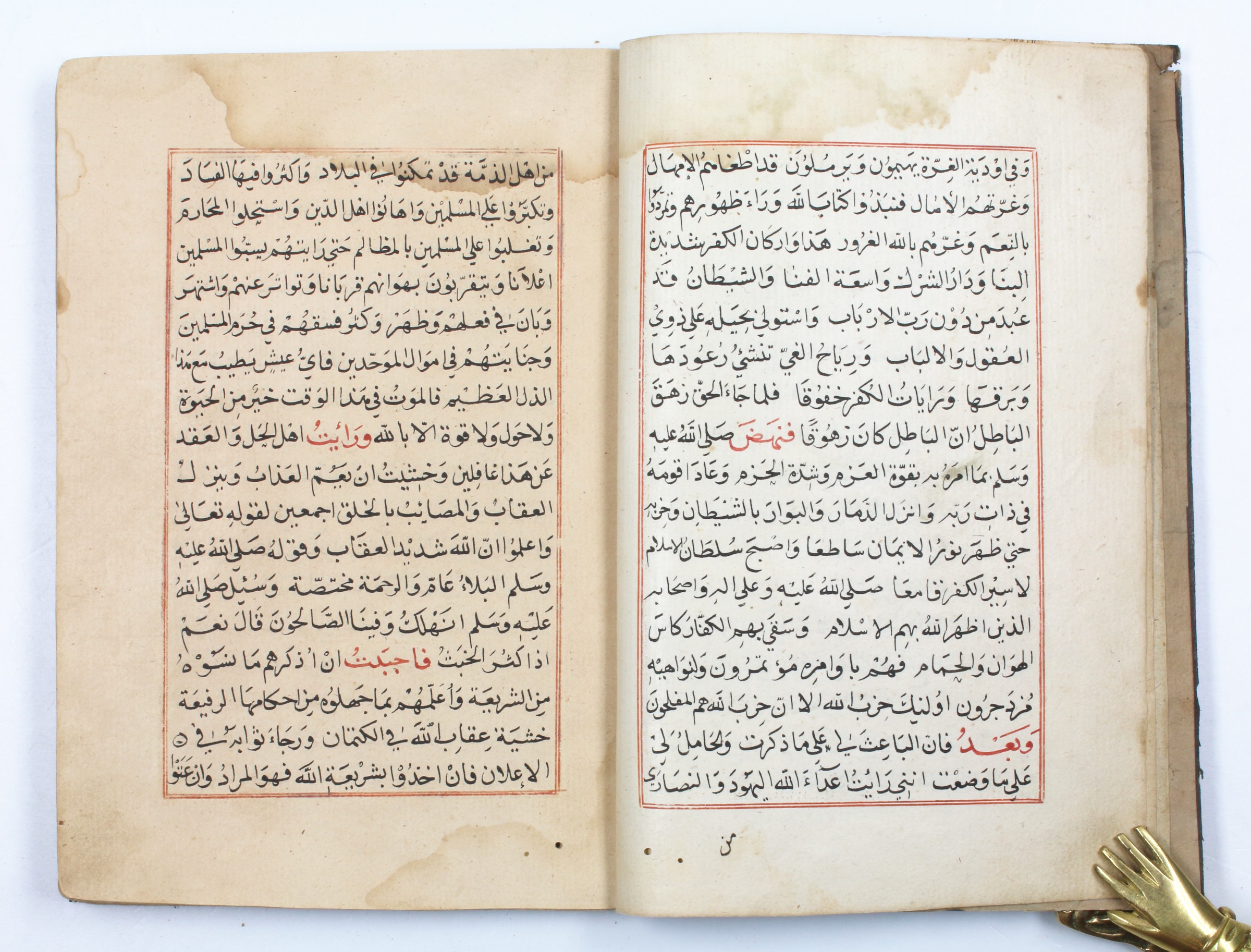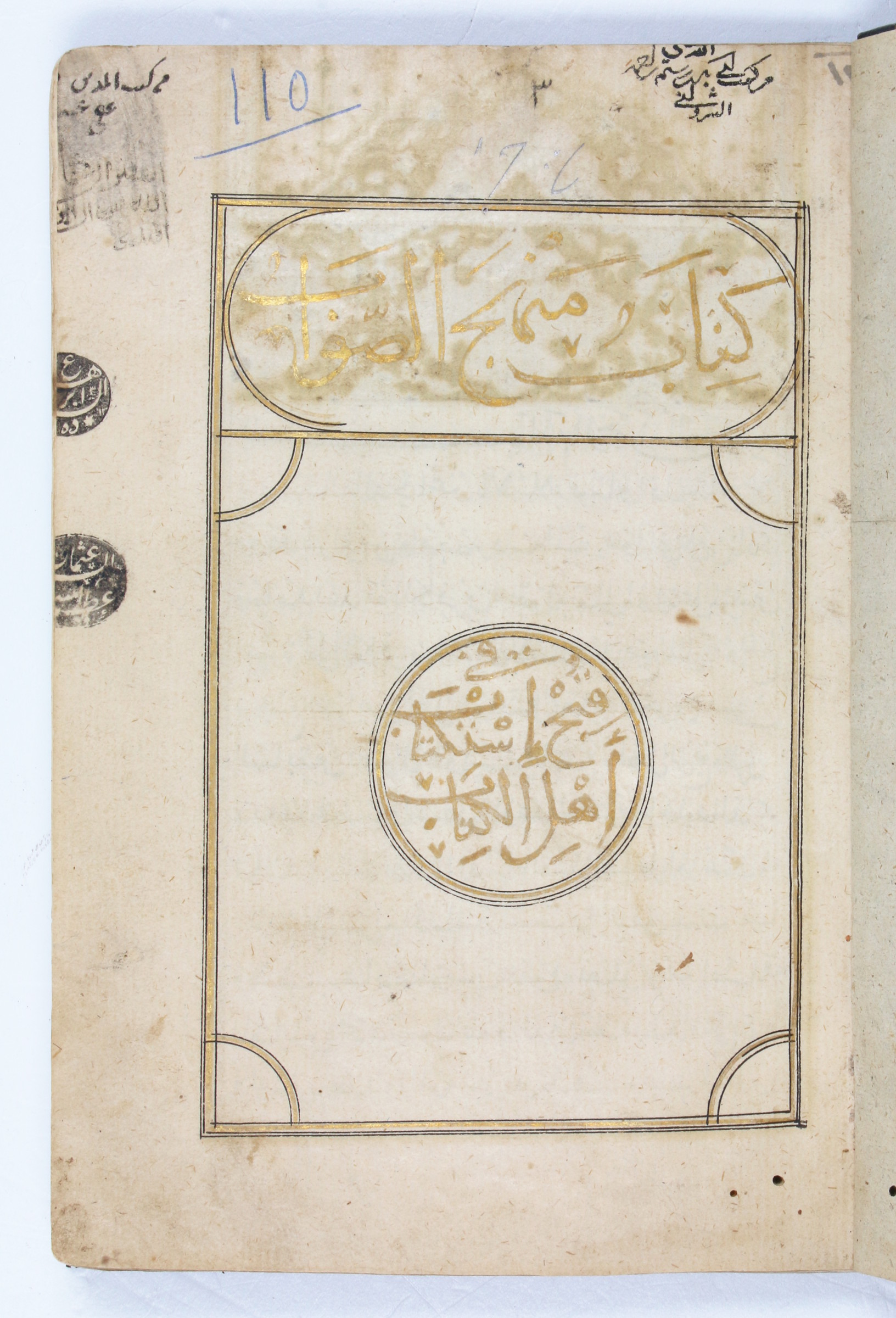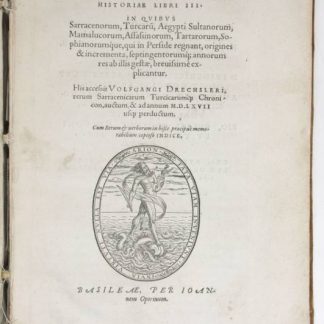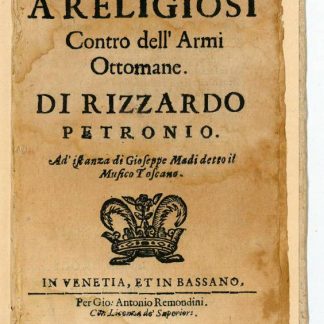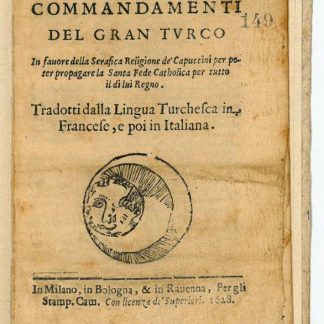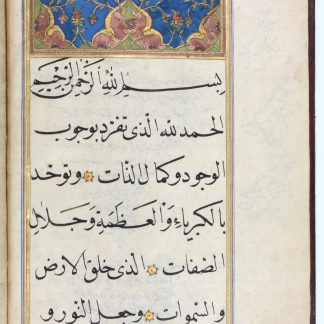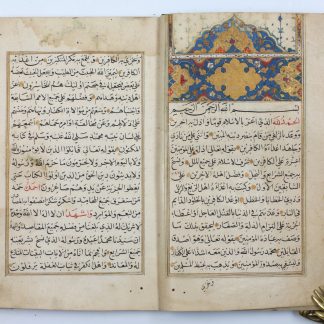Interfaith disputes in the Mamluk period
Manhaj al-sawab fi qubh istiktab Ahl al-Kitab.
8vo (133 x 193 mm). 44 ff. Arabic manuscript on laid paper. With title-page in gold, ruled in gilt, and an 'unwan in gilt, blue, white, red, and orange. First two pages ruled in gilt, following double-ruled in red. Black naskh script with important words and phrases picked out in red. 19th century leather elaborately ruled in gilt, with gilt and red morocco medallions.
€ 18.000,00
An original and verbose Mamluk treatise against the employment of non-Muslim officials by the Muslim political elite, written by the Sunni scholar and merchant Ibn al-Durayhim (1312-61) and decorated in gold and blue with a fine 'unwan on the first leaf. In Ibn al-Durayhim's time there were several known works warning against Muslim employment of non-Muslims, but his is notable for its focus on scribal work (particularly, he was upset by Christians and Jews who were appointed as clerks to the Treasury), and because it borrows relatively little from al-Durayhim's contemporaries. In fact, it is likely that Ibn al-Durayhim wrote his treatise earlier than other Mamluk texts on similar topics, and may have influenced the literary conversation in that direction. Certainly, the author states this as his intent in the text itself, and claims that no one else has yet treated the subject as thoroughly as he feels is necessary.
The "People of the Book" (Ahl al-Kitab, in the title) were the Christians and Jews of Mamluk Egypt. Though many different sects were present in Cairo at the time, Ibn al-Durayhim speaks most strongly against Coptic Christians, perhaps because they were the most visible or prevalent group; he is also somewhat openly critical of the ruling class, and particularly the young emirs of the ruling family. Altogether, "Manhaj al-sawab" is a text of tensions, and one which helps to paint a larger, more accurate picture of the historical realities of interfaith relationships and political rivalries in the Mamluk period.
Rebacked with modern spine. A few hints of dampstaining, mostly confined to the margins, and a few unobtrusive wormholes, otherwise very well preserved.

